Wrestle Wars: The Evolution of Competition in Professional Wrestling
Let's explore the heated battle between the various organizations in professional wrestling throughout the years
Professional wrestling has a rich and storied history, marked by intense competition between various federations and territories. This competition, often referred to as "Wrestle Wars," has significantly shaped the industry, with both positive and negative impacts on the business.
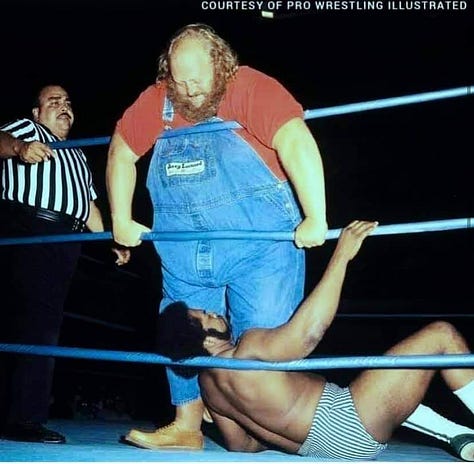
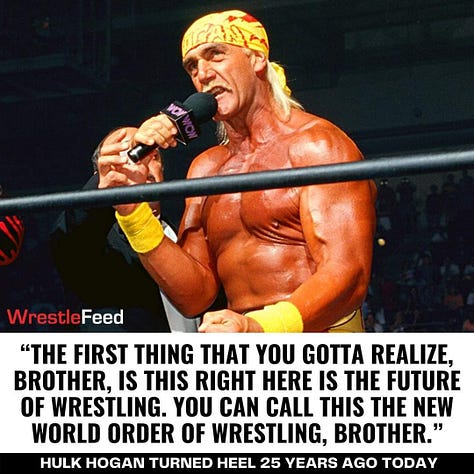

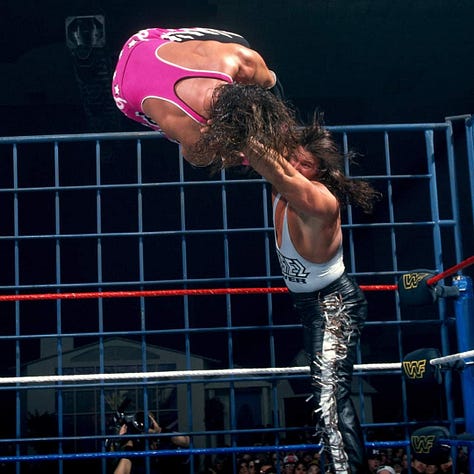
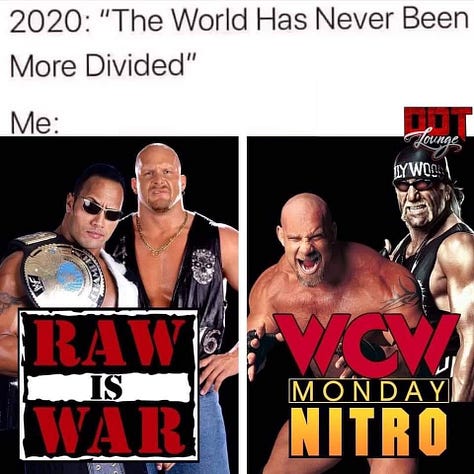
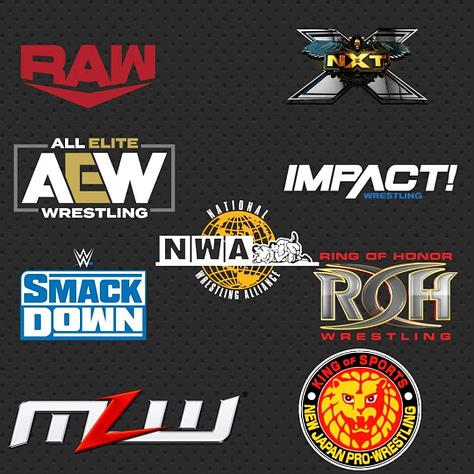
The origins of the Wrestle Wars can be traced back to the territorial system that dominated professional wrestling in the United States during the mid-20th century. This system was comprised of numerous regional promotions, each with its own champions and storylines. Prominent among these were the National Wrestling Alliance (NWA), the American Wrestling Association (AWA), and the World Wide Wrestling Federation (WWWF, later WWF and now WWE).
The AWA, founded by Verne Gagne in 1960, was known for its emphasis on traditional wrestling. It was a significant competitor to both the NWA and WWWF, producing many stars who would later become major players in the industry. However, the AWA struggled to adapt to the changing landscape of professional wrestling in the 1980s and eventually folded in 1991.
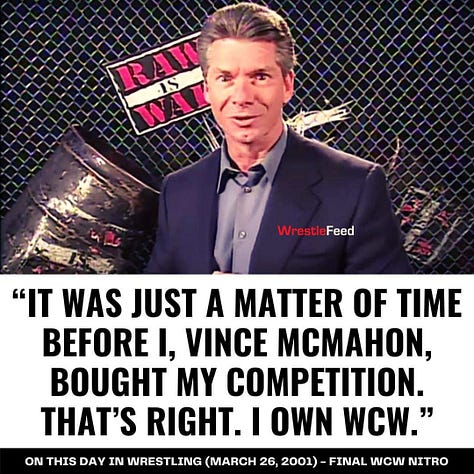
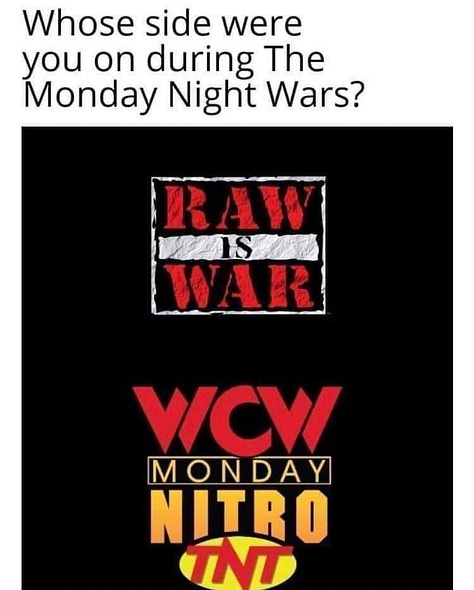
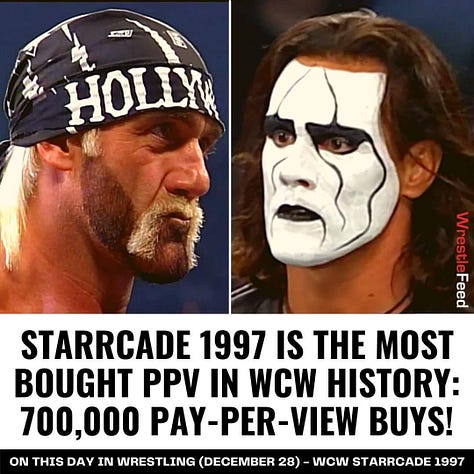
The NWA was a collective of territories that recognized a single World Champion. The WWWF was initially a part of the NWA but broke away in 1963, only to rejoin in the 1970s and then break away again in 1983. This breakaway marked the beginning of a new era in professional wrestling.
In the 1980s, Vince McMahon, owner of the WWF, embarked on an aggressive expansion strategy. McMahon began to sign talent from other territories and broadcast his programming nationally, effectively breaking the territorial system. This expansion led to the first Wrestle War, between the WWF and the remaining territories, most notably the NWA.
The 1990s saw the emergence of another major player in the wrestling industry, World Championship Wrestling (WCW). WCW was owned by media mogul Ted Turner and had the financial resources to compete with the WWF. This led to the most famous Wrestle War, often referred to as the "Monday Night Wars," due to both promotions airing their flagship shows on Monday nights.
Another significant player during this time was Extreme Championship Wrestling (ECW). ECW was known for its hardcore style and adult-oriented storylines, which differentiated it from WWF and WCW. ECW's influence can still be seen in the industry today, despite its closure in 2001.
The Monday Night Wars were characterized by intense competition, with both promotions constantly trying to outdo each other. This period saw some of the most memorable moments in wrestling history and led to a boom in the industry's popularity. However, it also led to some negative consequences, such as the overuse of shock tactics and storyline swerves, which some fans felt detracted from the product.
In 2001, the WWF emerged victorious from the Monday Night Wars, purchasing both WCW and ECW. This left the WWF as the dominant force in professional wrestling, a position it has largely maintained to this day.
However, the lack of competition led to complacency within the WWF (renamed WWE in 2002), and many fans felt that the product suffered as a result. Several promotions attempted to challenge the WWE's dominance, most notably Total Nonstop Action (TNA, later renamed Impact Wrestling), but none were able to make a significant impact.
This changed with the emergence of All Elite Wrestling (AEW) in 2019. Founded by Tony Khan, AEW has managed to attract a significant fanbase and has signed many high-profile wrestlers. AEW's success has reignited the Wrestle Wars, leading to a new era of competition in professional wrestling.
The competition between AEW and WWE has had both positive and negative impacts on the business of professional wrestling. On the positive side, it has led to increased innovation and creativity in the industry. Both promotions are constantly striving to outdo each other, leading to more exciting and unpredictable programming. This competition has also been beneficial for the wrestlers themselves, as it has created more opportunities and increased their bargaining power.
Moreover, the competition has led to a resurgence in the popularity of professional wrestling. After a period of decline following the end of the Monday Night Wars, the industry is once again attracting a large and passionate fanbase. This has been beneficial for all promotions, not just AEW and WWE, as it has increased the overall demand for professional wrestling.
However, the competition has also had some negative consequences. One of these is the risk of over-saturation. With both AEW and WWE producing multiple shows each week, there is a concern that fans may become overwhelmed and lose interest. This is a challenge that the industry will need to manage carefully in the coming years.
Another potential negative consequence is the risk of a talent war. Both AEW and WWE are vying for the same pool of wrestlers, which could lead to escalating salaries and contract disputes. While this is beneficial for the wrestlers in the short term, it could potentially destabilize the industry in the long term.
Furthermore, the intense competition could lead to a repeat of some of the negative aspects of the Monday Night Wars, such as the overuse of shock tactics and storyline swerves. Both AEW and WWE will need to ensure that they maintain a focus on quality storytelling and in-ring action, rather than resorting to cheap tricks to gain a short-term ratings boost.
In conclusion, the Wrestle Wars have had a profound impact on the business of professional wrestling. They have driven innovation and creativity, led to a boom in the industry's popularity, and created more opportunities for wrestlers. However, they have also posed challenges and risks, such as the potential for over-saturation and talent wars.
As we move forward, it will be interesting to see how the competition between AEW and WWE evolves. Will it lead to a new golden age of professional wrestling, or will it result in a repeat of the mistakes of the past? Only time will tell. Regardless, one thing is clear: the Wrestle Wars are a defining feature of professional wrestling, shaping the industry in ways both seen and unseen.




